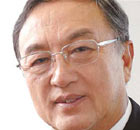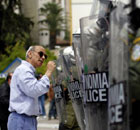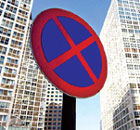Markets
Europe bailout perks up stocks
By Darren Boey and Saeromi Shin (China Daily)
Updated: 2010-05-11 09:56
 |
Large Medium Small |
Govts to lend up to $962 billion to nations under attack by speculators
HONG KONG - Stocks surged around the world, the euro strengthened and commodities gained as European policymakers unveiled a $962 billion loan plan to end the region's sovereign-debt crisis. Treasuries plunged and bunds fell.
The MSCI World Index climbed rose 2.4 percent to 1,125.48 as of 5:15 pm in Tokyo. Standard & Poor's 500 Index futures rallied 4.1 percent. The euro appreciated 2.3 percent to $1.3046. South Korea's won jumped 2 percent against the dollar, while the cost of protecting Asian bonds from default fell the most in more than a year and a half. Crude oil gained 3.8 percent.
Governments of the 16 euro nations agreed to lend as much as 750 billion euros ($962 billion) to countries under attack from speculators. The European Central Bank said it will counter "severe tensions" in "certain" markets by purchasing government and private debt. Concerns that the Greek financial crisis will spread wiped $3.7 trillion from the value of global stock markets last week.
"In the short-term, it may be viewed as a positive and we may recover some of the losses we had in equities last week," Oscar Pulido, a portfolio specialist at BlackRock Inc, said in a briefing in Seoul. "In the longer-term, it's going to be very much dependant on whether governments in these countries can truly take the measures to reduce the deficits they've accumulated." BlackRock managed $3.36 trillion in assets as of March 31, according to its website.
The Stoxx Europe 600 advanced 4.6 percent to 248.02. The MSCI Asia Pacific Index gained 1.6 percent to 120.26. Gauges of raw-material producers, energy and finance companies in Asia all rose at least 1.9 percent, the most among 10 industry groups. The three industry measures posted the MSCI index's biggest declines last week.
HSBC Holdings Plc, Europe's largest bank, climbed 5.6 percent to HK$77.70 in Hong Kong, following last week's 9.1 percent tumble. Commonwealth Bank of Australia, the nation's biggest bank by market value, climbed 5.2 percent to A$55.75.
Rio Tinto Group, the world's third-largest mining company, rose 5.9 percent to A$68.80 as copper increased 2.7 percent in London to $7,134.50 a metric ton. Korea Zinc Co gained 3.8 percent to 191,500 won in Seoul.
Under the loan package, euro-area governments pledged 440 billion euros in loans or guarantees, with 60 billion euros more in loans from the European Union's budget and as much as 250 billion euros from the International Monetary Fund. The ECB said it will conduct "interventions" to ensure "depth and liquidity" in markets.
"A coordinated effort by ECB and the EU member nations is exactly what was needed to bring back stability and order," said Prasad Patkar, who helps manage $1.7 billion at Platypus Asset Management Ltd in Sydney. "This may well end the crisis in Europe as the fears of policy inertia from disunity and domestic political priorities of the member nations recede."
The steps came after failure to contain Greece's fiscal crisis triggered a 4.1 percent tumble last week in the euro versus the dollar, the most since the five days ended Oct 24, 2008. Europe concerns, exacerbated by waves of computerized trades, caused the Dow Jones Industrial Average to briefly plunge by 1,000 points on May 6.
The euro soared 4.1 percent on Monday to 121.6 yen. The British pound strengthened 0.7 percent to $1.4914, snapping a six-day loss. Japan's currency declined against all 16 of its most-traded counterparts and Treasuries slumped as demand for safer assets waned.
|
||||
"EU finance ministers have rushed to 'shock and awe' the markets," Mitul Kotecha, head of global currency strategy at Credit Agricole CIB, wrote. "The package will likely lead to stabilization of markets in the next day or so but the question further out is whether it will lead to a sustained improvement in confidence."
The South Korean won climbed 2 percent to 1,132.08 per dollar, while the Malaysian ringgit advanced 2.4 percent to 3.195 per dollar. Overseas investors sold more South Korean shares than they bought for a fifth straight day, following net sales of $2 billion last week. South Korea's benchmark Kospi stock index rose 1.8 percent, the biggest gain since April 21.
Bloomberg News















